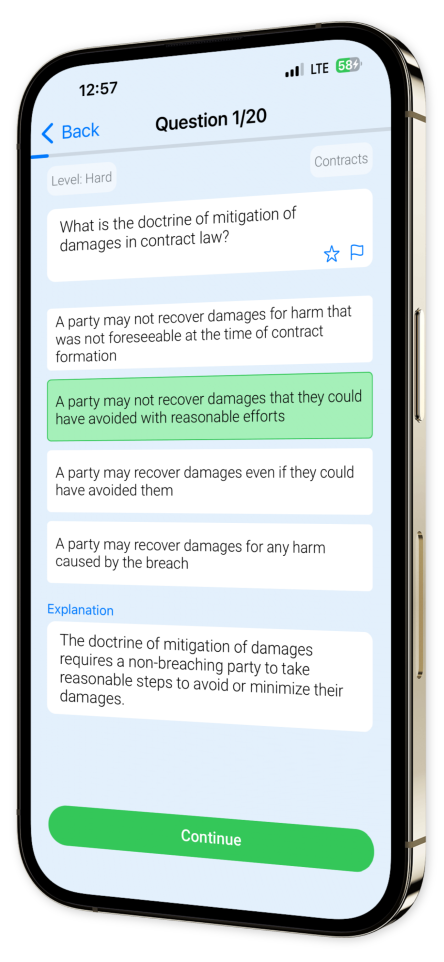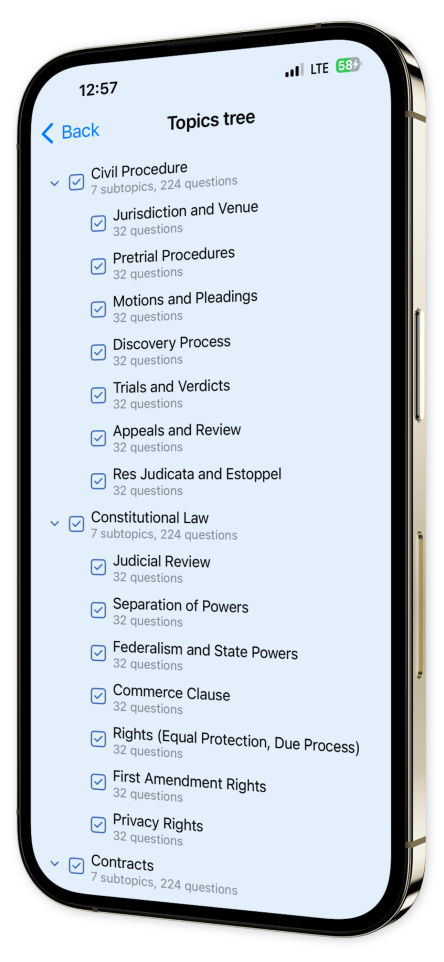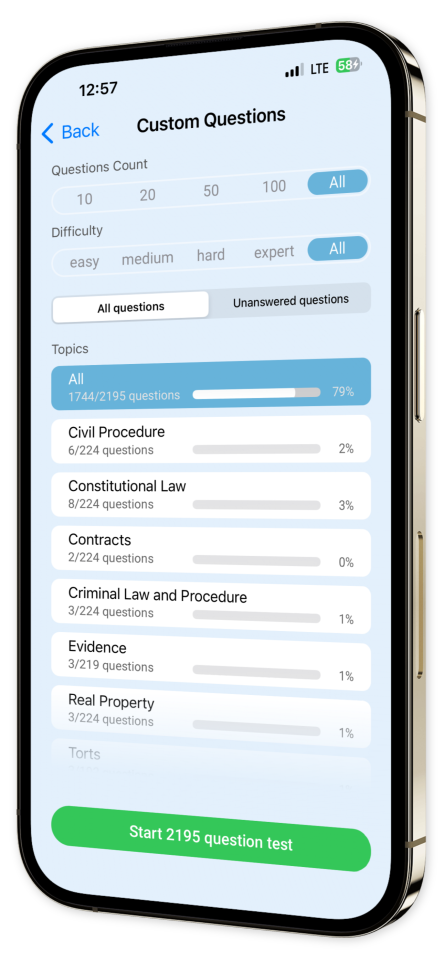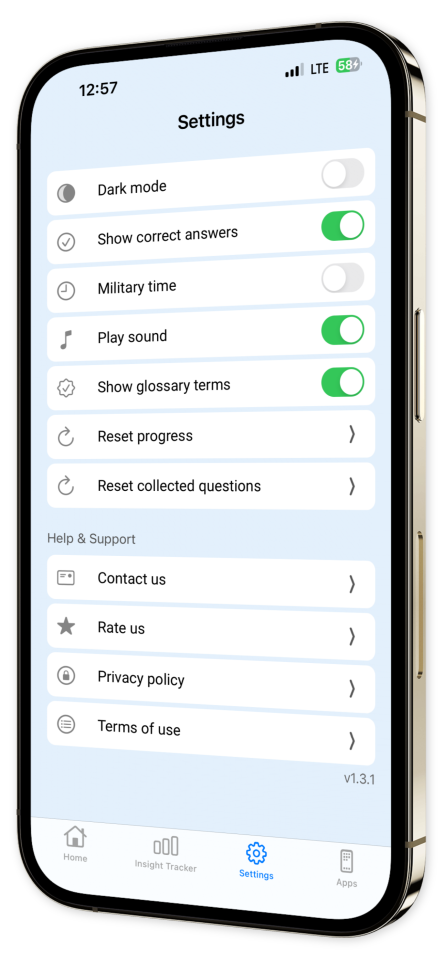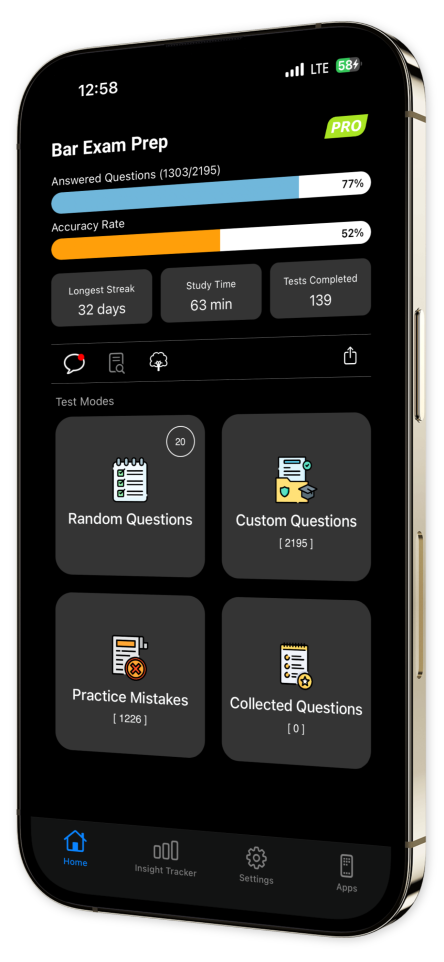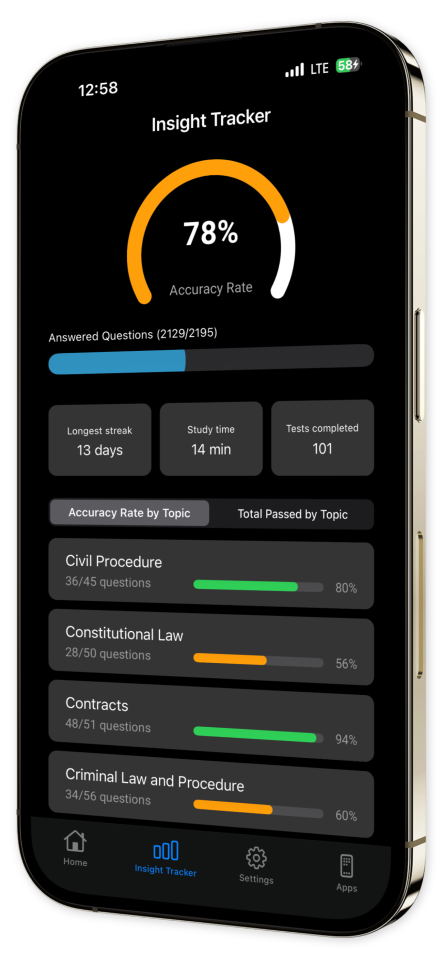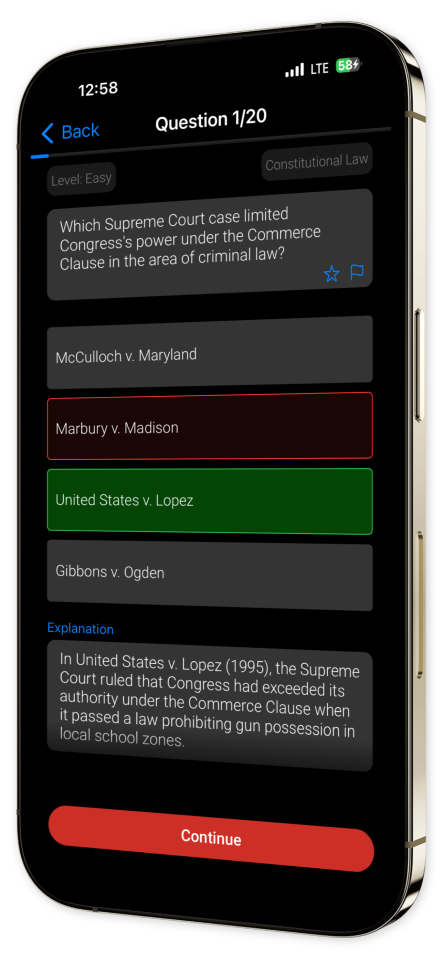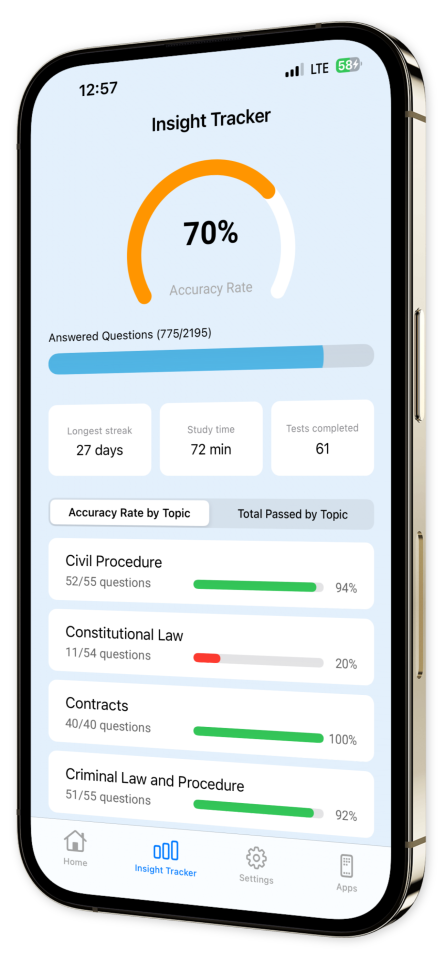
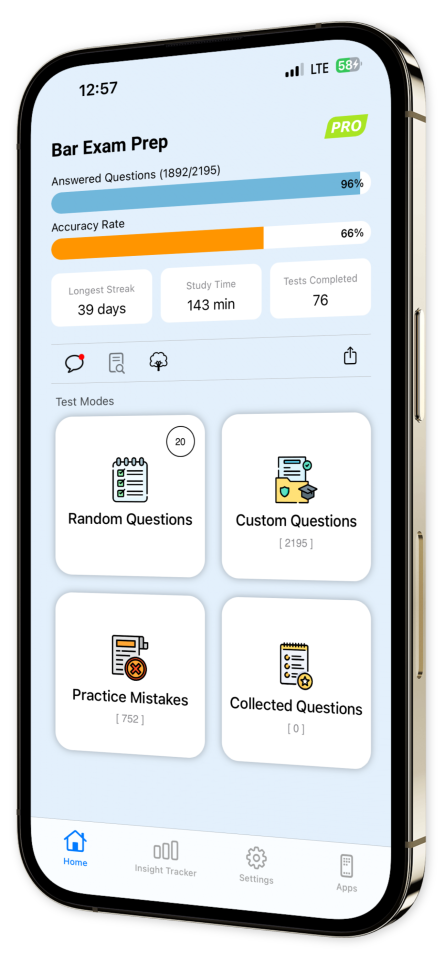
Bar Exam Prep iOS and Android App
Outperform on the Bar Exam with Bar Exam Prep!
Ready to demonstrate your legal acumen and secure your future as a licensed attorney? Bar Exam Prep is designed to equip you with the knowledge and strategic insight necessary to tackle the Bar Exam with precision and poise.
With expertly designed questions covering all critical areas, including Constitutional Law, Criminal Law, Contracts, and Evidence, our app ensures you’re ready to address even the most challenging legal issues. Each question is accompanied by in-depth explanations, empowering you to sharpen your reasoning and enhance your understanding of key legal doctrines.
Tailor your study sessions to target specific areas of law, whether it’s navigating constitutional complexities or refining your grasp on civil procedure. Track your progress and refine your strategy, ensuring you’re fully prepared when it counts.
Join the ranks of future legal professionals who trust Bar Exam Prep to help them prepare effectively.
Download now and arm yourself with the tools to surpass expectations on the Bar Exam and take the next step in your legal career!
Content Overview
Explore a variety of topics covered in the app.
Example questions
Let's look at some sample questions
Which of the following is not a type of personal jurisdiction?
In personam jurisdictionIn rem jurisdictionQuasi in rem jurisdictionEx parte jurisdiction
Ex parte jurisdiction is not a type of personal jurisdiction. In personam, in rem, and quasi in rem are all types of personal jurisdiction.
Which rule of the Federal Rules of Civil Procedure governs depositions?
Rule 16Rule 26Rule 30Rule 56
Rule 30 of the Federal Rules of Civil Procedure governs depositions. It outlines the procedures for taking, using, and objecting to depositions.
Which clause of the Constitution is often interpreted as giving the courts the power of judicial review?
Commerce ClauseSupremacy ClauseNecessary and Proper ClauseDue Process Clause
The Supremacy Clause of the Constitution is often interpreted as giving the courts the power of judicial review. It establishes that the federal constitution, and federal law generally, take precedence over state laws, and even state constitutions.
What is the primary purpose of the Fourth Amendment?
To protect against unreasonable searches and seizuresTo provide the right to a speedy trialTo protect the right to bear armsTo ensure the right to a fair trial
The Fourth Amendment was designed to protect against unreasonable searches and seizures. It requires that warrants be judicially sanctioned and supported by probable cause.
Which of the following is not an exception to the Fourth Amendment's warrant requirement?
ConsentExigent circumstancesStop and friskAll are exceptions
Consent, exigent circumstances, and stop and frisk are all exceptions to the Fourth Amendment's warrant requirement. If any of these conditions apply, law enforcement does not need a warrant to conduct a search or seizure.
What is a 'preemptive right' in the context of corporate formation?
Right to remove directorsRight to approve mergersRight to purchase new shares before they are offered to othersRight to dissolve the corporation
'Preemptive right' is the right of a shareholder to purchase new shares before they are offered to others. This right allows existing shareholders to maintain their proportional ownership in the corporation.
What type of stock carries the right to vote on corporate matters?
A: Preferred StockB: Common StockC: Treasury StockBoth A and B
'Common Stock' carries the right to vote on corporate matters. Preferred stock, on the other hand, usually does not have voting rights but has a higher claim on earnings and assets.
What is 'par value' in the context of corporate stock?
The market value of the stockThe minimum price at which a corporation can issue its stockThe maximum price at which a corporation can issue its stockThe dividend value of the stock
'Par value' is the minimum price at which a corporation can issue its stock. It is a nominal value and may not reflect the actual market value of the stock.
Who has the right to challenge a will during probate?
Only the executor or administratorOnly the beneficiaries named in the willAny interested party, including potential heirs and creditorsOnly the decedent's family members
Any interested party, including potential heirs and creditors, has the right to challenge a will during probate. This is done by filing a will contest with the probate court.
Which of the following is not required for a security interest to be perfected?
Attachment of the security interestFiling a financing statementPossession of the collateral by the secured partyApproval by a judge
Judicial approval is not required for a security interest to be perfected. The three basic steps to perfection are attachment, filing a financing statement, and possession or control of the collateral by the secured party.



